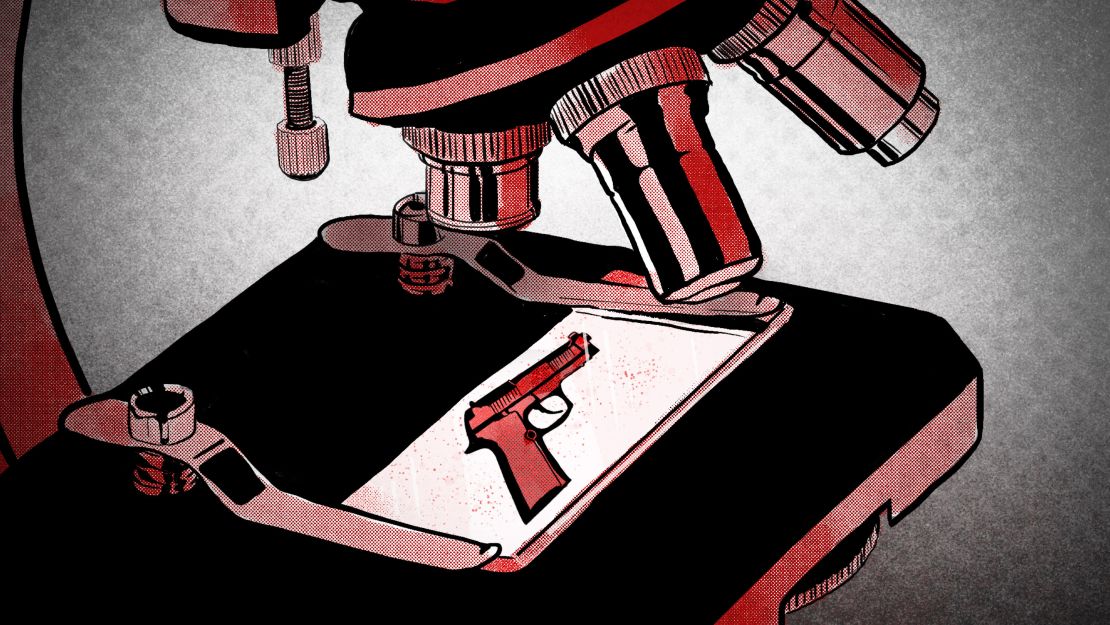Editor’s Note: Marjorie S. Rosenthal is an associate professor of pediatrics at the Yale University School of Medicine. She was a 2015-2016 public voices fellow with the Op-Ed Project. The views expressed in this commentary are her own.
Story highlights
Marjorie Rosenthal: As a physician and cancer patient, I've seen firsthand the importance of scientific research in improving cancer treatment
This same approach should be applied to researching gun violence and prevention, writes Rosenthal
I have metastatic colon cancer and, like the families grieving from the mass shooting in Las Vegas, I have the thoughts and prayers of almost everyone I know.
But it’s hard to imagine why anyone might think this is enough.
When I was first diagnosed – four years ago – I didn’t want to tell people about my diagnosis. I was scared. Telling people made it all that more real. So I enlisted my family to tell people. And they asked those people to tell other people. In the beginning, I didn’t have to tell anyone.

It wasn’t until a few months later, as I began to acknowledge my diagnosis and started going out of the house, that I started to tell people.
Some people asked why they hadn’t seen me in a while. I told them I have cancer.
Some people commented on my new hair style. I told them I have cancer.
Some people asked how I was doing. I told them I have cancer.
And they all offered me their thoughts and prayers.
But it’s hard to imagine why anyone might think this is enough.
Beyond their thoughts and prayers, they offered me lasagnas and banana bread and cookies and warm blankets and rides to sporting events for my children and rides to doctors’ appointment for me and offers to care for my yard. All of which has been so helpful. No one has a better support system than me.
But it’s hard to imagine why anyone might think this is enough.
Of course, key to my survival has been my oncologist, my surgeon and their teams – they gave me their thoughts and prayers. And chemotherapy. And took out cancerous parts of my colon, liver and pancreas.
But it’s hard to imagine why anyone might think this is enough.
The federal government spends over $5 billion on cancer research and over $200 million on colon cancer research. And guess what? Over the past few decades – due in large part to this research – the survival rates for many kinds of cancers have improved dramatically. For example, someone with metastatic colon cancer in 1975 had a 6% chance of living 5 years. Today I have a 14% chance.
There is no cure for my cancer. My numbers aren’t what I wish they were. But they are much better than they would be if this was 1975. And I’m hoping to stick around long enough so that the numbers get even better.
There may be no cure for gun violence, either. But unlike with cancer, we do not study the problem to see if we might be able to improve the numbers.
In fact, we limit federal funds to research gun violence prevention. In 1996, Congress restricted the Centers for Disease control (CDC) from funding gun violence research. The year before the budget was cut, the CDC was funding gun violence research at $2.6 million per year. By 2013, they were funding at $100,000 per year.

After the 2012 mass shooting at Sandy Hook Elementary School, President Barack Obama issued an executive order reinstating gun violence prevention research at the National Institutes of Health (NIH). NIH sponsored $18 million worth of research until the order lapsed in Jan 2017.
To be sure, colon cancer kills more people than gun violence. But the difference in federal funding for gun violence prevention research cannot be explained by this fact alone. In the United states, gun violence kills about 10 people per 100,000 per year and colon cancer kills about 15 people per 100,000 per year, but colon cancer research funding is more than 100 times what gun violence prevention research is.
As we are, once again, faced with the grief and heartache of a mass shooting and debating what can be done to prevent the next one, I can’t help but wonder. What if we dedicated resources to our best scientists to rigorously study gun safety and gun violence prevention?
If scientists studied the relationship between gun deaths and topics as varied as purchasing patterns, background checks, safety locks, gun design, and health care provider screening, then maybe we could prevent some gun violence deaths.
So, yes, thank you for your thoughts and prayers. And thank you for your lasagnas and cookies and warm blankets. I need those things. They help.
But, like the families already grieving from gun violence – and like those who will soon grieve from gun violence unless we change things – I need the federal government to do what it can. I need the federal government to do its best to prevent cancer, make chemotherapy safe, foster innovative surgical techniques and improve survival. And to do so, I need them to fund cancer research from all these different angles.
As a pediatrician, a mother, and proud citizen of this great country, I also need the federal government to fund gun violence research from many different angles.
And since we don’t know who the next cancer patient or gun violence victim will be, you need this, too.

